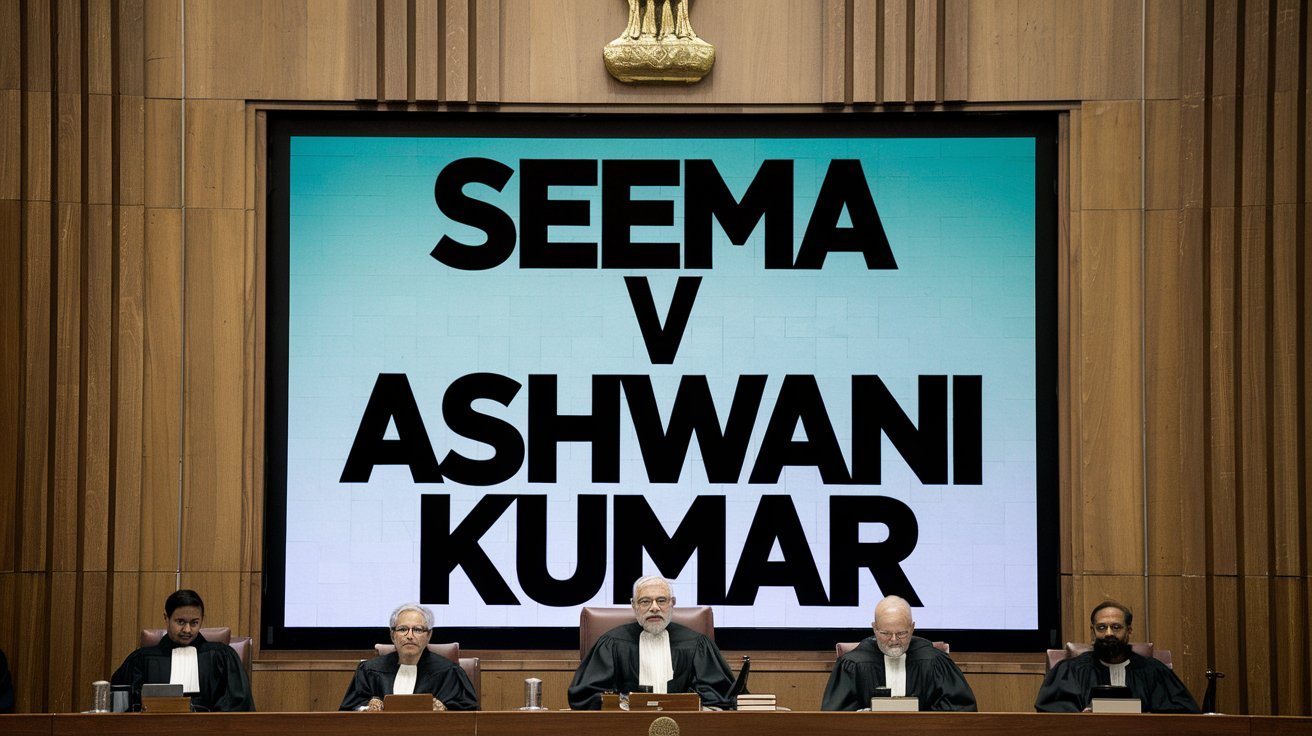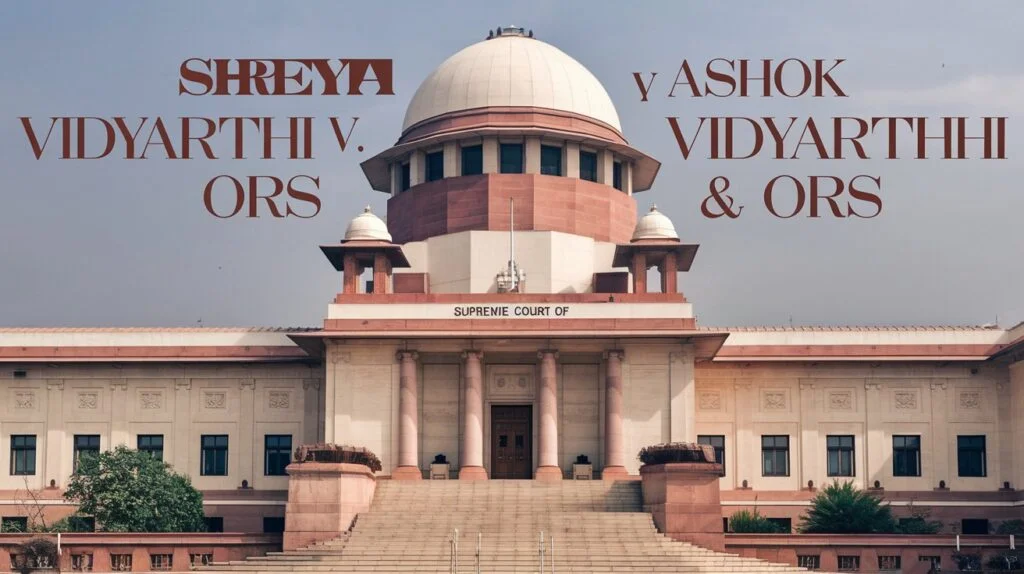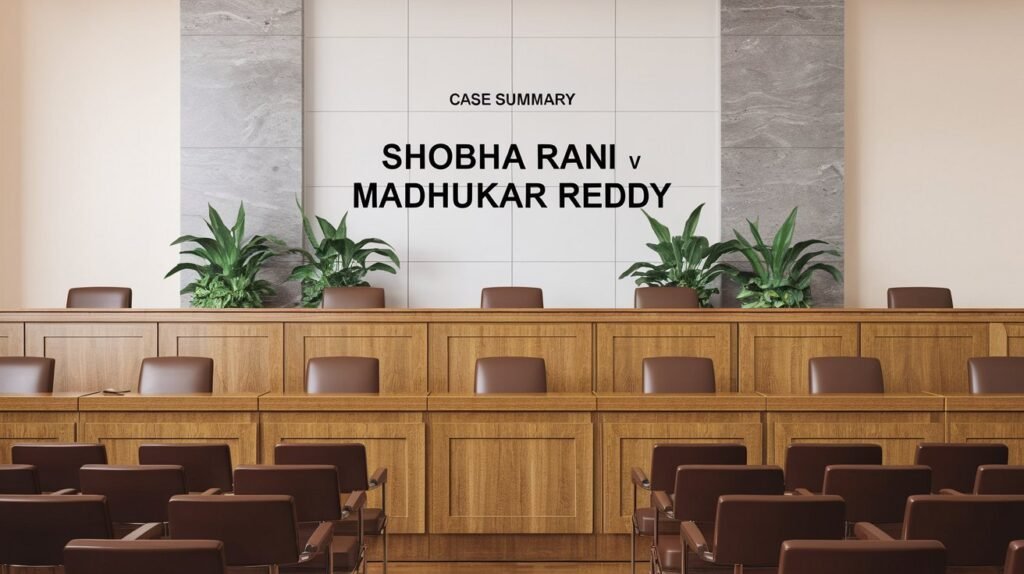Seema v Ashwani Kumar AIR 2006 SC 1158 (Case Summary)

The Supreme Court of India emphasized the importance of compulsory registration of marriages to address issues such as child marriage and ensure legal recognition of marriages. The Court directed all states to amend their laws to make the registration of marriages mandatory, irrespective of religion or community.
Table of Contents
ToggleFacts of Seema v Ashwani Kumar
- Seema, the petitioner, filed a case at the district court in Haryana, because of the recurring conflicts between the couple.
- During the proceedings, the case was transferred to the Court of Additional District Judge in Delhi.
- Later an interim order was issued which put the case proceedings at halt.
- The case was transferred to the Supreme Court due to the problem of unregistered marriages.
Issues framed
- Whether the registration of marriages should be made compulsory across all states and union territories in India, irrespective of religion or personal law?
- Whether failure to register a marriage should carry legal consequences to ensure compliance?
Subordinate Court Judgment
In the trial court, the case initially began as a transfer petition filed by Seema, seeking the transfer of her matrimonial case to another jurisdiction.
Judgment of Seema v Ashwani Kumar
The case in the Supreme Court involved the interpretation of. Section 8 of the Hindu Marriage Act, 1955, provides for the registration of marriage solemnized by following Hindu rituals and several state laws that dealt with the registration of marriages.
The Supreme Court recognized that the absence of compulsory registration created legal uncertainty, especially in matrimonial and succession disputes. It held that compulsory registration of marriages would promote social welfare, ensure legal validity, and help prevent child marriages. The Court referenced existing statutes in various states and emphasized the need for uniformity across India.
The Supreme Court issued a directive to all states and union territories to enact laws making the registration of marriages compulsory within three months. It also stated that the registration process should be uniform across religions and should involve proper verification to ensure accurate documentation of marriages. Failure to comply with this directive could result in penalties.
The Supreme Court laid down the following guidelines for compulsory marriage registration to be implemented across all states and union territories:
- All marriages, irrespective of religion, caste, or personal laws, must be registered with the relevant government authority.
- States and union territories were directed to frame appropriate rules and regulations for the implementation of compulsory marriage registration.These rules must specify the process, timeline, and authority responsible for registration.
- Governments were instructed to conduct awareness campaigns to educate the public about the benefits of marriage registration.
- States and union territories were required to comply with the directive and formulate marriage registration rules within a reasonable time frame.
- Proper records of all registered marriages must be maintained by the designated authorities.





